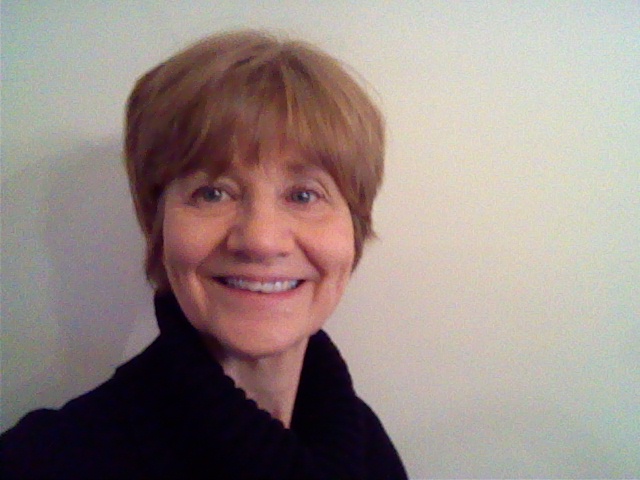
One key to "integrating the three C's" -- college, career and citizenship -- is recalling those who kept alive traditions of work-centered education and civic learning. Lois Olson, an active participant and leader in Internships and Cooperative Education with strong citizenship interests, is a case in point.
Cooperative education is a method of combining academic study and classroom learning with practical work experience, for which students often receive academic credit. Co-op education and Internships, resembling John Dewey's concept that education should be connected "with real things and materials... and the knowledge of their social necessities and uses," was created by Dewey's contemporary, the engineer, architect, and educator Herman Schneider (1872-1939) in the early 20th century.
Lois Olson, recently retired director of the Strommen Center for Meaningful Work at Augsburg College in Minneapolis, was hired in 1985 to help implement a Cooperative Education grant from the Department of Education. In those years the Department's Cooperative Education program supported curricular innovation tying work experiences to academic learning. Olson, hired by Dr. Garry Hesser, the faculty co-op ed director, now Augsburg's Sabo Professor of Citizenship and long-time leader in experiential education, wrote at her retirement, "No one has contributed more than Lois to the deepening of Augsburg's experiential education and career development."

Boyte: Lois, throughout your career, you've stressed citizenship aspects of work-based learning. Where did that come from?
Olson: I grew up on a farm in Southwestern Minnesota where politics was everywhere. My grandfather and dad were active in local government and especially the farmers union. My dad often took me to the local pool hall, where the farmers and townspeople -- store owners, the town doctor and lawyer, the owners of the grain elevator and the car dealerships gathered for coffee, Democrats and Republicans.
It was the civic site for the town. Even at a young age, I was fascinated how the conversations intertwined politics, religion and economics. Later, I completed my undergraduate degree at the University of Minnesota's Department of Human Ecology, which was highly interdisciplinary. I remember taking a course in American Studies with David Noble, who described the populist movements of the 1930s, and railed against the growth of consumer culture. My graduate studies focused on leadership, experiential education and career development where I began to make meaning out of all this.
Boyte: How was Co-op Education set up at Augsburg?
Olson: We built upon the long tradition of Experiential Education begun in the 1960's, pioneered by sociology professor Joel Torstenson. We had a Faculty Advisory Council and an Employer Council. The faculty council had one representative -- often the department chair -- from every department. Their responsibility was to work with Garry and me to design learning outcomes and a reflection process related to their discipline. The student was responsible for negotiating learning goals and assessment plans. The Employer Council included businesses which hired students. My job was to connect students with departments and employers. I also helped students think broadly about their work. We gave them leads but they had to make the calls and set up interviews, preparing them for the "real" work world.
Boyte: After the Co-op Education grant ended you said you had some frustrations with the growing movement for service learning for not recognizing work as a civic site. Could you describe that?
Olson: I was a strong supporter of service-learning, but I thought something was missing. People said service learning was about citizenship, yet made a distinction between that and work experiences. I never agreed with the separation. When I talked with students I would ask, how can you be a citizen in your neighborhood, your family, your college, AND your workplace? How do these connect and intersect?
Boyte: You helped craft the "Augsburg Experience" for students at Augsburg focused on a required experiential education experience in the community, which included a "work connection" option. It included a question about the workplace as a "corporate citizen." Could you describe this?
Olson: I wanted to pull together elements that I believed students were compartmentalizing. They would take a course with a service learning component and then another focused on vocation. Many had work experience. Some were active in the community. However, the typical student seldom saw any connections. I wanted a reflection process that tied all these together -- academic, service, vocation, community and civic responsibility.
I worked one on one with students, asking them to think about their work experiences and also their community life and education. What are you learning about your strengths? How can you develop them? What else do you need to know? How are you going to learn what you know you don't know? One of the questions was about the job itself. I asked, "Do you or do you not believe that your organization is a good corporate citizen? Why or why not?" Students worked for businesses, schools, nonprofits, mom and pop stores, government... one of the best reflections I received was from a student working at a golf course.
I said, "Find out the mission, the vision, the goals, and practices of your organization. Describe the culture, policies, allocation of resources that might impact citizenship." Responses were very rich. Some said, 'I had no idea that my employer was doing all this.' Others said, 'I looked at the mission and realized it was mostly PR.' Some held discussions about this with their fellow workers.
"The struggle students had is how to act on what they learned. They said, 'What am I going to do about this?' By asking the question, they made a different meaning of their experience. My goal was to provide tools to make real and personal connections between their work life, their personal and public lives and their responsibility of being citizens who can make a difference."
Harry C. Boyte is director of the Center for Democracy and Citizenship at Augsburg College and a Senior Fellow at the University of Minnesota's Humphrey School of Public Affairs.
